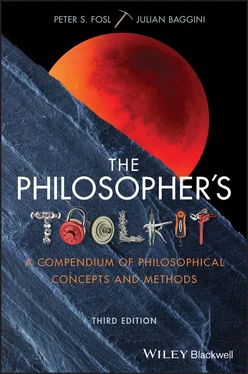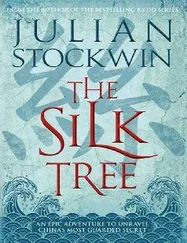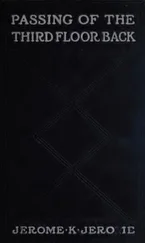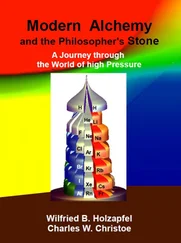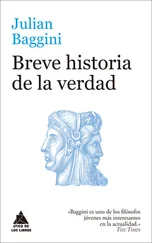Library of Congress Cataloging‐in‐Publication Data
Names: Fosl, Peter S., author. | Baggini, Julian, author.
Title: The philosopher’s toolkit : a compendium of philosophical concepts and methods / Peter S. Fosl and Julian Baggini.
Description: Third edition. | Hoboken : Wiley‐Blackwell, 2020. | Includes bibliographical references and index.
Identifiers: LCCN 2019053537 (print) | LCCN 2019053538 (ebook) | ISBN 9781119103219 (paperback) | ISBN 9781119103226 (adobe pdf) | ISBN 9781119103233 (epub)
Subjects: LCSH: Reasoning. | Methodology.
Classification: LCC BC177 .F675 2020 (print) | LCC BC177 (ebook) | DDC 101–dc23 LC record available at https://lccn.loc.gov/2019053537LC ebook record available at https://lccn.loc.gov/2019053538
Cover Design: Wiley
Cover Images: WMM‐Retro coal © Alex_Po/Shutterstock, Supermoon
© tanoochai/Shutterstock, Dark grey black slate © aesah kongsue/Shutterstock, Nuts and bolts © Winston Link/Shutterstock, Iso Lock © tacojim/iStock.com, Engine Parts Machine © MR.TEERASAK KHEMNGERN/Shutterstock, Magnet and nails © revers/Shutterstock, A set of rulers © Sergio Stakhnyk/Shutterstock, Vice grips © Thomas Northcut/Getty Images, Steelyard with black © Dimedrol68/Shutterstock, Plumbing tools © ansonsaw/iStock.com
For Rick O’Neil, colleague and friend, in memoriam
We are indebted to Nicholas Fearn, who helped to conceive and plan this book, and whose fingerprints can still be found here and there. We are deeply grateful to Jeff Dean at Wiley‐Blackwell for nurturing the book from a good idea in theory to, we hope, a good book in practice. Thanks to Rick O’Neil, Jack Furlong, Ellen Cox, Mark Moorman, Randall Auxier, Bradley Monton, Avery Kolers, Tom Flynn, and Saul Kutnicki for their help with various entries as well as to the anonymous reviewers for their thorough scrutiny of the text. We are also thankful for the work of Peter’s secretary, Ann Cranfill, as well as of many of his colleagues for proofreading. Robert E. Rosenberg, Peter’s colleague in chemistry, exhibited extraordinary generosity in reviewing the scientific content of the text. We would also like to express our appreciation to Manish Luthra, Marissa Koors, Liz Wingett, Daniel Finch, Rachel Greenberg, Aneetta Antony, and Caroline McPherson at Wiley for their careful and supportive editorial work. Thanks also to Peter’s students for their feedback, as well as for corrections and suggestions for improvement sent to us from several readers. Our enduring gratitude goes to Peter’s spouse and children – Catherine Fosl, Isaac Fosl‐van Wyke, and Elijah Fosl – as well as to Julian’s partner, Antonia, for their patient support.
Alphabetical Table of Contents
| 3.1 |
Affirming, denying, and conditionals |
| 4.1 |
A priori / a posteriori |
| 2.1 |
Abduction |
| 4.2 |
Absolute/relative |
| 3.2 |
Alternative explanations |
| 3.3 |
Ambiguity and vagueness |
| 2.4 |
Analogies |
| 4.3 |
Analytic/synthetic |
| 2.5 |
Anomalies and exceptions that prove the rule |
| 5.1 |
Aphorism, fragment, remark |
| 1.1 |
Arguments, premises, and conclusions |
| 1.9 |
Axioms |
| 7.1 |
Basic beliefs |
| 4.4 |
Belief/knowledge |
| 3.4 |
Bivalence and the excluded middle |
| 4.5 |
Categorical/modal |
| 5.2 |
Categories and specific differences |
| 3.5 |
Category mistakes |
| 4.6 |
Cause/reason |
| 1.11 |
Certainty and probability |
| 3.6 |
Ceteris paribus |
| 3.7 |
Circularity |
| 6.1 |
Class critique |
| 3.8 |
Composition and division |
| 3.9 |
Conceptual incoherence |
| 4.7 |
Conditional/biconditional |
| 1.6 |
Consistency |
| 3.10 |
Contradiction/contrariety |
| 3.11 |
Conversion, contraposition, obversion |
| 3.12 |
Counterexamples |
| 3.13 |
Criteria |
| 6.8 |
Critiques of naturalism |
| 6.2 |
Différance, deconstruction, and the critique of presence |
| 1.2 |
Deduction |
| 4.9 |
Defeasible/indefeasible |
| 1.10 |
Definitions |
| 4.8 |
De re/de dicto |
| 2.3 |
Dialectic |
| 3.14 |
Doxa/para‐doxa |
| 5.3 |
Elenchus and aporia |
| 6.3 |
Empiricist critique of metaphysics |
| 4.11 |
Endurantism/perdurantism |
| 4.10 |
Entailment/implication |
| 3.15 |
Error theory |
| 4.12 |
Essence/accident |
| 1.7 |
Fallacies |
| 3.17 |
False cause |
| 3.16 |
False dichotomy |
| 6.4 |
Feminist and gender critiques |
| 6.5 |
Foucaultian critique of power |
| 3.18 |
Genetic fallacy |
| 7.2 |
Gödel and incompleteness |
| 5.4 |
Hegel’s master/slave dialectic |
| 6.6 |
Heideggerian critique of metaphysics |
| 7.3 |
Hermeneutic circle |
| 3.19 |
Horned dilemmas |
| 5.5 |
Hume’s fork |
| 2.2 |
Hypothetico‐deductive method |
| 5.6 |
Indirect discourse |
| 1.3 |
Induction |
| 4.13 |
Internalism/externalism |
| 2.6 |
Intuition pumps |
| 1.5 |
Invalidity |
| 3.20 |
Is/ought gap |
| 4.14 |
Knowledge by acquaintance/description |
| 6.7 |
Lacanian critique |
| 5.7 |
Leibniz’s law of identity |
| 2.7 |
Logical constructions |
| 3.21 |
Masked man fallacy |
| 4.15 |
Mind/body |
| 7.5 |
Mystical experience and revelation |
| 4.16 |
Necessary/contingent |
| 4.17 |
Necessary/sufficient |
| 6.9 |
Nietzschean critique of Christian–Platonic culture |
| 4.18 |
Nothingness/being |
| 4.19 |
Objective/subjective |
| 5.8 |
Ockham’s razor |
| 7.6 |
Paradoxes |
| 3.22 |
Partners in guilt |
| 2.8 |
Performativity and speech acts |
| 5.9 |
Phenomenological method(s) |
| 7.4 |
Philosophy and/as art |
| 7.7 |
Possibility and impossibility |
| 6.10 |
Pragmatist critique |
| 7.8 |
Primitives |
| 3.23 |
Principle of charity |
| 3.24 |
Question‐begging |
| 4.20 |
Realist/non‐realist |
| 2.9 |
Reduction |
| 3.25 |
Reductios |
| 3.26 |
Redundancy |
| 1.8 |
Refutation |
| 3.27 |
Regresses |
| 2.10 |
Representation |
| 6.11 |
Sartrean critique of ‘bad faith’ |
| 3.28 |
Saving the phenomena |
| 7.10 |
Scepticism |
| 3.29 |
Self‐defeating arguments |
| 7.9 |
Self‐evident truths |
| 4.21 |
Sense/reference |
| 5.10 |
Signs and signifiers |
| 4.22 |
Substratum/bundle |
| 3.30 |
Sufficient reason |
| 4.23 |
Syntax/semantics |
| 1.12 |
Tautologies, self‐contradictions, and the law of non‐contradiction |
| 3.31 |
Testability |
| 4.25 |
Thick/thin concepts |
| 2.11 |
Thought experiments |
| 5.11 |
Transcendental argument |
| 4.26 |
Types/tokens |
| 7.11 |
Underdetermination |
| 4.24 |
Universal/particular |
| 2.12 |
Useful fictions |
| 1.4 |
Validity and soundness |
Читать дальше
